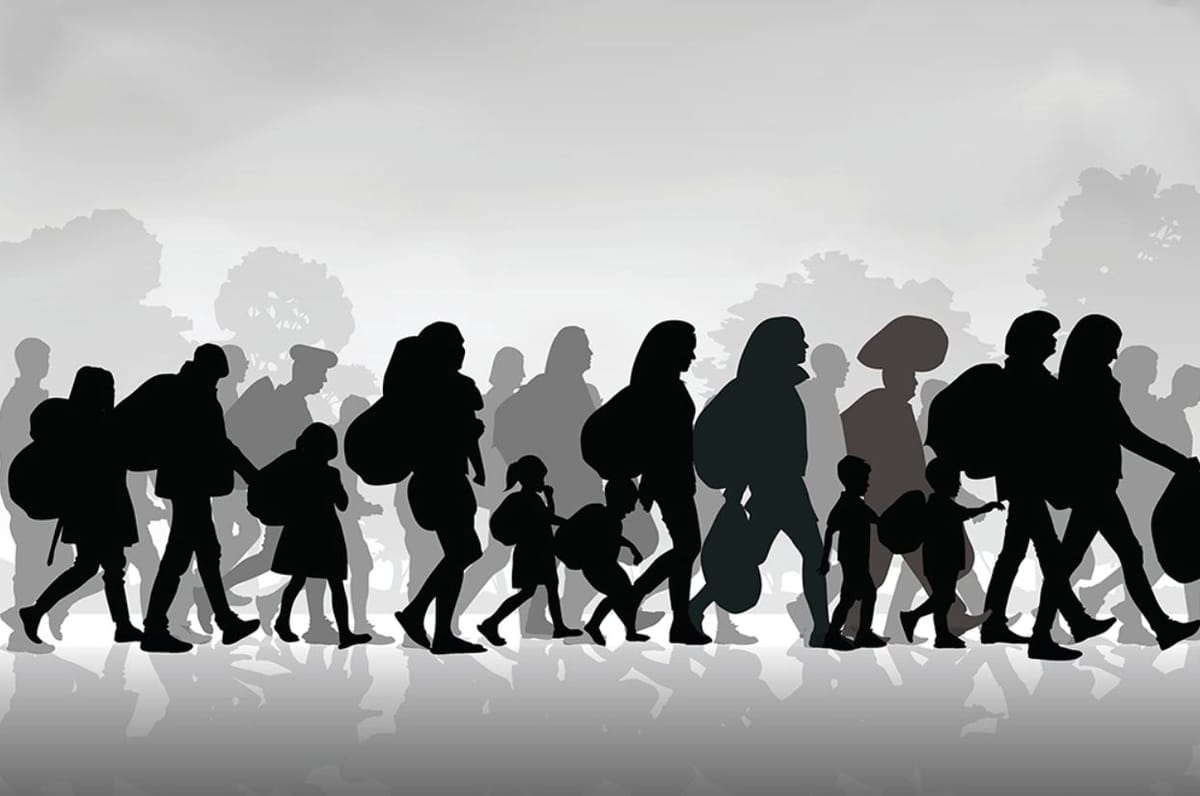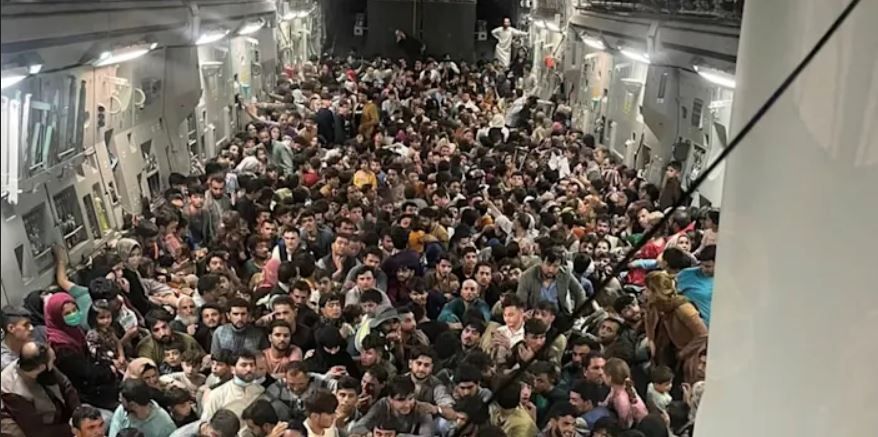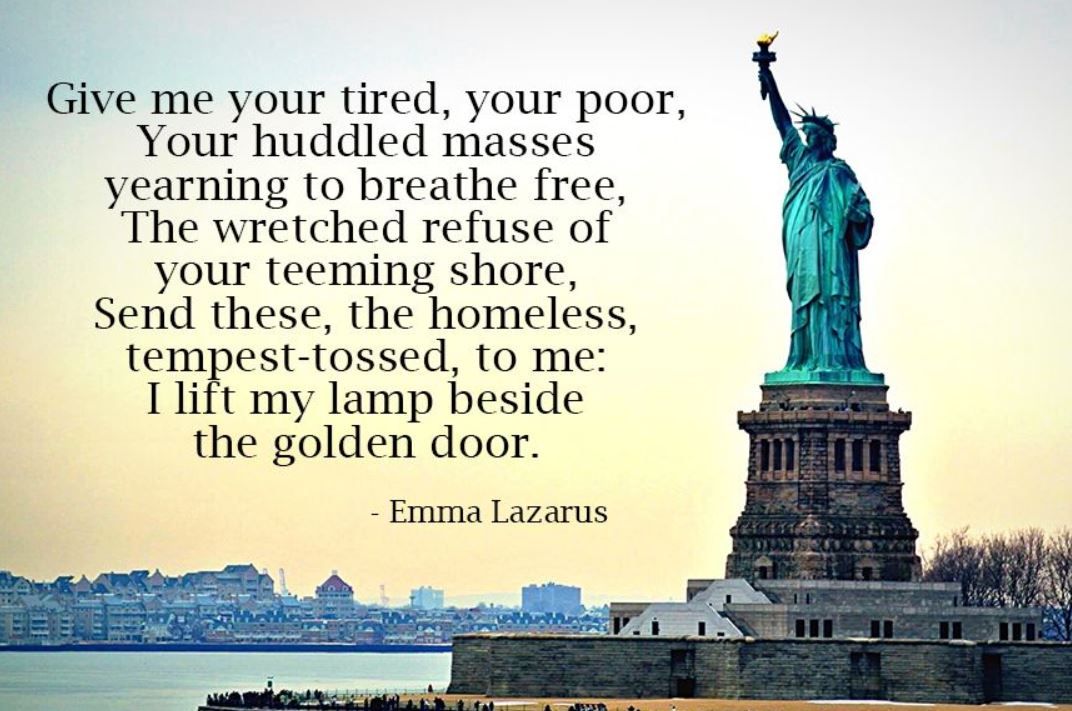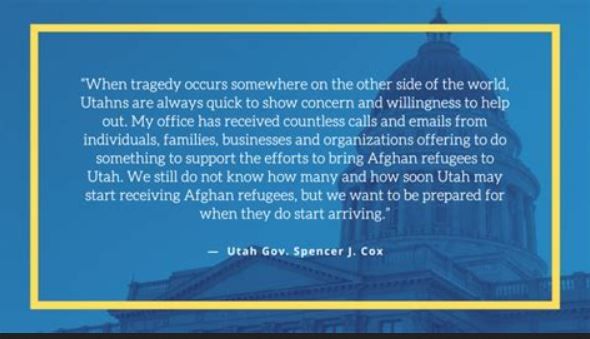What's to be Done for Refugees out of Afghanistan?

In the last two weeks, there have been countless articles, social media posts, and news releases on the situation that has unfolded in Afghanistan. I think every type of shock, outrage, regret, and sorrow has been expressed throughout the world wide web.
The initial shock centered around the fact that America’s military withdrawal was so poorly planned, especially since our nation is supposed to have one of the most powerful militaries in the world. Then came the distress that the country of Afghanistan could fall apart so quickly to a terrorist organization, which the Afghan armed forces largely put up so little resistance too. (not all the forces, if you want to be truly depressed, look up what’s happened with the Afghanistan special forces) Then came the sorrow for the Afghan people who desperately were trying to get out of the country. I know I watched with morbid fascination as C-17’s flew out of Kabul filled to the brim with refugees and sometimes even with people clinging to the wings or landing gear of the planes.

In particular it was interesting watching people I know talk about the various issues and crises that have arisen across the whole Afghanistan situation. The most interesting discussion to me was what should be done for the people of Afghanistan, by the US, by surrounding nations, and by themselves.
Watching the narrative be told was fascinating. Initially it seemed to be one of wanting to help, people were incredulous that so little help had been done for those who had helped the American forces in the country for the last many years. As it sunk in that these countless Afghan refugees were fleeing the country and would need new homes, the tune seemingly changed instantaneously from one of what can be done to it’s not our problem. The narrative abruptly turned into an anti-refugee one from multiple major news outlets. In particular, one news outlet put out stories within days of each other, one calling for someone to aid these fleeing people, one decrying the dangers of allowing refugees into the states. Literally, the story changed within 48 hours.
The most disheartening thing to me though has been seeing how fearful people are. Why are so many Americans afraid that these many refugees pose such a great threat to our way of life. These Americans are threatened for a variety of reasons such as nationalistic beliefs, fear of future potential terrorists attacks, or simply the unknown. I like to believe that our society is strong enough to withstand the sudden influx by people not familiar with this way of life. It’s not like the Chinese, German, Irish, or the other immigration waves came to the country and were immediately able to integrate. America, at least in the past, was the country built on immigrants and refugees and it seems like we have a great opportunity now to uphold the promise of the Statue of Liberty. It’s commonly said that America is a great mixing pot of all cultures, ethnicity's, and peoples, so why does adding some Middle Eastern flavor strike so many people with fear?
I think the answer to that lies in what the average American has been consuming. That is the creed of America first, which is a disgrace to the countless men and women who have sacrificed so this country can be filled with those “yearning to be free”.

America’s citizens and politicians should realize by now that we can’t just prop up countries and force them to live and follow the ideals that we’ve set and follow. It didn’t work in Vietnam, it didn’t work in Iraq, and it didn’t work in Afghanistan. (and it didn’t work in the countless dictators we propped up during the Cold War) Democracy doesn’t work in every culture and society.
Simply put, America’s form of democracy does not work everywhere in the world. (some say it doesn’t work here either but that’s an entirely different discussion) What America can do though is be the best example of itself possible. We can live up to the bold words on the Statue of Liberty that seem to speak about what this country’s policies should be towards refugees.
This past week I was surprised and proud of how Spencer Cox, the governor of Utah responded to the plight of Afghanistan’s refugees. Gov. Cox is a Republican, he leads a very conservative state. (It hasn’t had a Democrat governor since 1985, and hasn’t voted for Democrat presidential candidate since 1964) In recent years, republicans have largely become the America First party, and often that includes anti-immigration as well as anti-refugees stances. Yet, Gov. Cox turned away from the Trumpian (really nationalistic beliefs) beliefs that have taken over that party and essentially told President Biden, that Utah wants to help these Afghanistan refugees and is willing to help refugees as needed.

Not exactly a sentiment that seems to be shared by many of the popular conservative talking heads. While no significant action (to my knowledge) has been taken yet to accept or help actual refugees in Utah, the signal of wanting to help is massive, and we’ll have to see in the coming weeks whether Gov. Cox holds to his word or if it was just, “nice” sentiment.
Being from Utah, I know a lot of Utahns. (not on the grand scale, but most of the people I know, do tend to have lived in the state) I regret to say, a significant portion of those I know don’t seem to share Gov. Cox’s belief that Utah is a good place to settle refugees, Afghani or not.
One man I know posted on a social media account a picture of a C-17 filled with Afghani citizens with the caption, “Do you want a plane of these people coming to live in your state?” Then in the comments (the post had a highly spirited political debate) he expressly stated how he did not want these people in a city near him, or even his country. Many people defended them, or simply answered his question with some resounding “Yes” responses, but there were still a number of people who agreed with my acquaintance. They made comments that these people “wouldn’t appreciate our way of life”, or they “could be plants from the terrorists”, or simply “they don’t belong”.
Thankfully, Utah’s elected governor has more compassion and empathy than any of the callous individuals who were commenting on this post. At its core, America has always been a country of peoples who have become displaced. From the earliest settlers, the immigrants and refugees fleeing to the US have largely come from wars, persecutions and natural disasters. While unfortunately the US has created their own refugees, most notably our treatment of the Native Americans, this country should be the land that welcomes those who are wanting to find a better life. If there’s any real takeaway from this article I’d hope it’s this: America is a land of people who are free and who just want to live. There’s not a single “American lifestyle” because this should be the land of any lifestyle (with the obvious exceptions of when a lifestyle creates harm in others or for oneself), even those we don’t necessarily understand.
Not only is this country a home and safe haven for countless refugees and immigrants (as well as their descendants), it also has benefited enormously from these travelers. Bringing in individuals from around the world means bringing the strengths and abilities from all the various cultures of these refugees. America certainly has benefited from immigration (most notably, Einstein was a refugee and made significant advances in science to the benefit of all)
So maybe instead of focusing so much on how big of a disaster the withdrawal was and how much went wrong, it’d be nice to focus on how we can make it better. The first step should simply be getting those in danger at the Kabul airport to safety, and allowing them to simply go back to living their lives. It’s up to Americans to be the example and show the merits of democracy, of our culture, and our way of life and allow others to join us in it (via all the various importing of people process’s). The Afghanistan situation is still unfolding, but hopefully we’re able to learn the lessons for good from this situation, and become a little bit wiser in policy decisions for the future.
Disclaimer: This article was written prior to the attack on Kabul on 8/26/2021
